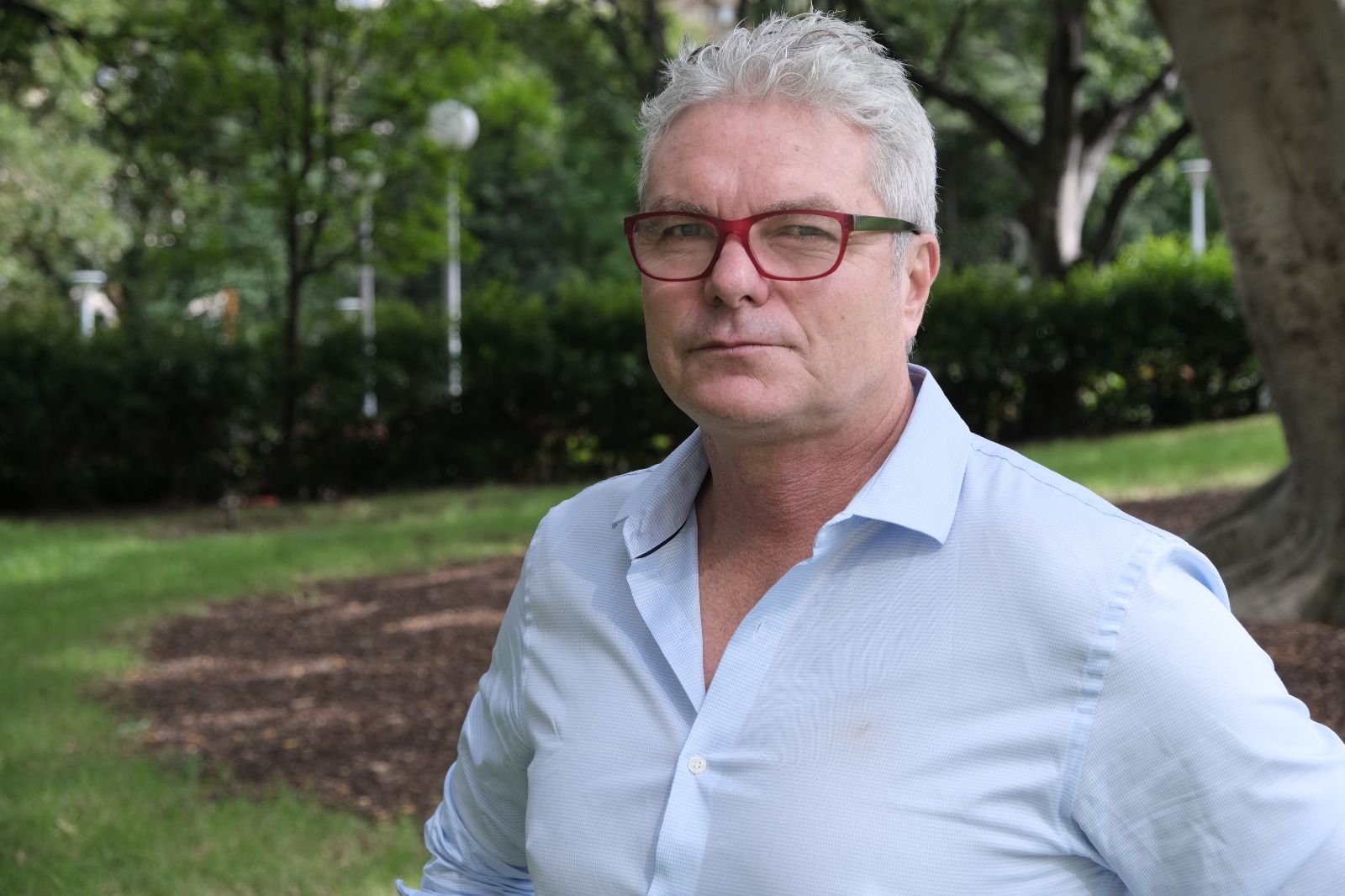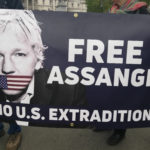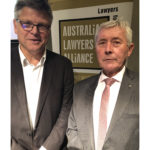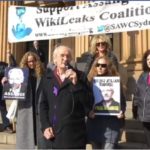The Criminalisation of Whistleblowers: An Interview With Professor A J Brown

Under the Morrison government, whistleblower prosecutions are all the rage.
Witness K was recently given a three month suspended sentence for his part in revealing the 2004 ASIS bugging of the Timor-Leste cabinet office, while Bernard Collaery is continuing to challenge his charge related to the same matter.
There’s the prosecution of former ADF lawyer David McBride for blowing the lid on the warrior culture that Australian special forces were operating under in Afghanistan. This continues despite calls for it to be dropped, including a recommendation from the Senate press freedoms inquiry.
Meanwhile, the Commonwealth Director of Public Prosecutions is refusing to drop the case against former ATO officer Richard Boyle for exposing dodgy debt collection practices that were being carried out by the federal tax office.
However, according to Griffith University Professor of Public Policy and Law A J Brown, this doesn’t have to be the case.
While government, security agencies and organisations may press for a whistleblower to be prosecuted, it’s inadequate public disclosure laws that almost ensure a prosecution and conviction from that point on.
Prosecution guaranteed
The Public Interest Disclosure Act 2013 (Cth) (the PID Act) is supposed to promote Commonwealth public officials to come forward with information about suspected wrongdoing.
It sets up a regime whereby a public servant must initially make a disclosure about a corrupt practice internally within a government department or agency. And it’s only after these avenues have been exhausted – either by lack of action or inadequate action – that a whistleblower can go public.
Take David McBride’s situation. He sought to raise his concerns internally about the way in which he’d witnessed Australian forces operating in Afghanistan, but nothing was done. So, he went to the ABC with classified information exposing alleged war crimes.
Yet, despite his having followed the correct procedures, McBride’s prosecution is being pursued.

One of the issues Professor Brown points to is the definition of intelligence information set out in section 41 of the PID Act, which he claims is so broad that whistleblowers are pursued regardless of any public interest or a lack of any threat to national security.
The report of the Moss review on the PID Act was published in 2016. The federal government only responded to it last December, when it stated that it agreed with 30 of the report’s 33 recommendations, and it resolved to overhaul the disclosure regime.
A lack of any defence
Professor Brown is also a director of Transparency International Australia, which is the national chapter of a global coalition against corruption that’s operating within 100 countries. It’s recently published a report into reforming Australia’s public interest whistleblowing laws.
Sydney Criminal Lawyers spoke to Professor A J Brown about the reasons there are so many whistleblower prosecutions taking place right now, the need for a public interest defence for those exposing corruption, and the creeping national security state.

Firstly, you advocate for reform around laws relating to public interest whistleblowers, as, at present, they don’t provide enough protection to those who expose corruption.
Professor Brown, why should our nation provide whistleblowers with greater protections? What is the value of these individuals coming forward?
We know from long experience that insiders are the most reliable and often the fastest way in which wrongdoing comes to light, so that’s why in principle having good whistleblower protection laws is so well accepted across the political spectrum.
The role whistleblowers play in integrity and accountability is now recognised. The challenge is in actually walking the talk of effectively protecting those individuals.
There’s very little public debate left now with people questioning the value of whistleblowing. But the reality of meeting the challenges to support and protect their role is ongoing.
At present, there are quite a few high-profile whistleblower prosecutions taking place. Witness K was just sentenced. Collaery and McBride will fight their charges, while the ATO continues to pursue Richard Boyle.
Why are all these whistleblower prosecutions taking place right now?
Over time, these sorts of prosecutions tend to come in waves. It’s particular agencies trying to assert a high degree of control at particular times for particular reasons.
Certainly, in defence and national security areas, you will see this happen.
The question is why our laws aren’t making those agencies and the Director of Public Prosecutions strike some more effective balance more quickly. That’s why these sorts of cases point to the need for the law to be reformed.
Witness K is a good example. After all the cost and the drama, the uncertainty and the damage, that’s been done by the case, his three month suspended sentence shows this.
The specific reasons for the sentence were the court recognising a public interest motivation and that public interest was served.
So, while technically there was an offence, the sentence certainly reflects the fact that this was not a significant or major crime on balance.
That sentence, whether directly or indirectly, reflects the recognition that this was a technical offence, not a crime or something that damaged national security in a way that would have called for a more serious penalty.
There has got to be a better way. The law has to prevent this amount of damage to public confidence, the reputation of the government, as well as the legal cost and the cost to the individuals involved.
The laws protecting federal public sector whistleblowers are contained within the Public Interest Disclosure Act 2013 (Cth). Why aren’t these laws doing their job?
One thing we know about the Public Interest Disclosure Act is the definition of intelligence information in it is too broad.
That’s the definition that prevents a public servant from going to a third party or going public with any information that’s been generated or held by an intelligence agency.
So, equivalent wrongdoing in any other agency would be able to be disclosed to third parties or the public if it’s not adequately resolved within the system.
But if it’s intelligence information based on the broad definition, then automatically a whistleblower is prevented from being able to claim protection or immunity for having made that disclosure.
It was not surprising that Witness K pleaded guilty in the end to the offence, because the law left him with no way of claiming a defence. And it should.
The Public Interest Disclosure Act and whistleblower laws should provide a defence, because that’s their purpose: to enable people who make a disclosure to be able to claim a public interest defence.
The reforms to the law that the Commonwealth government is considering need to recognise that fact, because in principle that’s what the law should be providing.
It’s never going to achieve its objectives, unless it actually follows through and applies to those sorts of circumstances, or at least gives a whistleblower a fair day in court.
It should also give the court the option to say an issue was in the public interest, so rather than give a three month suspended sentence, it doesn’t have to convict the whistleblower.
In a 2019 article in the Conversation, you stated that Australian whistleblower laws are set up in such a way that anything that merely touches upon national security triggers a criminal investigation and charges being pressed regardless of any public interest.
Are you suggesting it’s the laws forcing the hands of government and security agencies to pursue whistleblowers?
No. Not necessary, because it’s always up to particular agencies to make the decision, whether that is Defence, intelligence agencies or whether that’s the Australian Tax Office. They are the ones that provide the information to the DPP.
So, they make a calculation that something is not in the public interest, or it’s a criminal offence. Then the DPP has to weigh it up. Once that occurs, it’s the calculation the DPP makes.
The problem is the law should be setting a clearer framework to guide the decision of the DPP and then, ultimately, guide the court as to what is in the public interest or not.
The fact that the definition of intelligence information is so broad is preventing agencies, and the DPP in particular, from not pursuing anything that touches upon national security or intelligence.
That means that while they don’t have to prosecute, if they do there’s no public interest defence that’s available. And it should be available to at least be argued.
You assert that there are many changes that need to take place within the law in order to bring about real protection for whistleblowers.
Would you say the most prominent and urgent reform that needs to be implemented is the public interest defence?
No. It is a critical one. But it’s not the only one. There are also problems with the compensation provisions, and there are mechanical problems with the inflexibility of some of the public interest disclosure regimes.
We know the thresholds for being able to demonstrate a right to compensation for damage or for a failure by an agency or organisation to fulfil their duty to protect or support a whistleblower are too high.
We know that those thresholds are too high by international standards.
There’s quite a number of things that are well recognised as needing reform, including the definition of intelligence information.
It’s often raised that, as attorney general, George Brandis declined to provide any agreement to pursue the prosecution of K and Collaery back in 2015, and it wasn’t until after Christian Porter replaced him that the new AG determined to prosecute in May 2018.
This was years after the fact. What are your thoughts on how this all unfolded?
There should not be political control over any prosecutions of this kind. It should not be up to the attorney general to decide that a prosecution like this should go ahead.
We have an independent Director of Public Prosecutions for a reason: that independence should be preserved.
There is nothing to stop an attorney general saying to a DPP that the government believes there has been an offence here, or to say that the government believes that when it comes to weighing the public interest, that somebody shouldn’t be prosecuted.
But it shouldn’t be a political decision at all. That’s not the solution. It should be removed from the equation.
And lastly, Professor Brown, back in 2019, when there were a lot of eyes on these high-profile prosecutions, the AFP conducted two press raids.
These were connected to whistleblowers as the journalists were raided in relation to materials that had been leaked to them.
Taken together, what do the whistleblower prosecutions and the AFP press raids tell us about the state of the nation?
What they tell us is that a lot of the things that most citizens take for granted in terms of freedom of the press and the protection of whistleblowers aren’t actually in place.
Those liberties and protections that we assume are well entrenched in our political and legal system are in fact not entrenched at all.
They’re only protected by convention. And they’re only protected as long as there’s good will and good intention. They are not protected by law.
We have creeping national security concerns, a rising tide of laws that criminalise the disclosure and release of different types of information, and the increasing sensitivity of political leaders and senior public servants to criticism.
So, there are increasing reasons why governments and people in power seek to exploit the situation to repress information and to repress or undermine the institutions we rely on to bring wrongdoing to light, whether that’s whistleblowers or the media or both.
That reinforces why some stronger protections for the role of the media are needed along with these types of reforms we’re talking about for whistleblowers.
We take these things for granted, when, in fact, we shouldn’t be. We need to be strengthening them.







